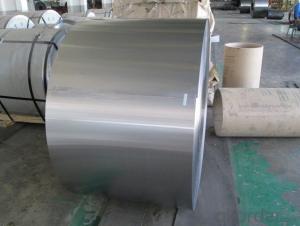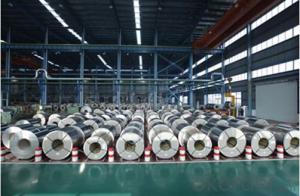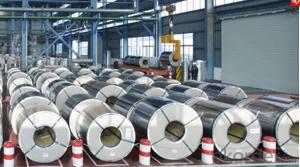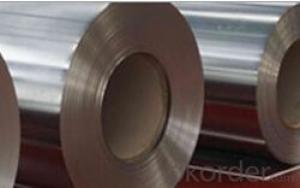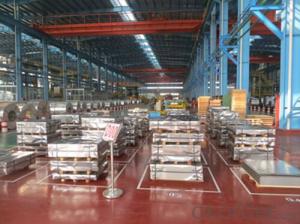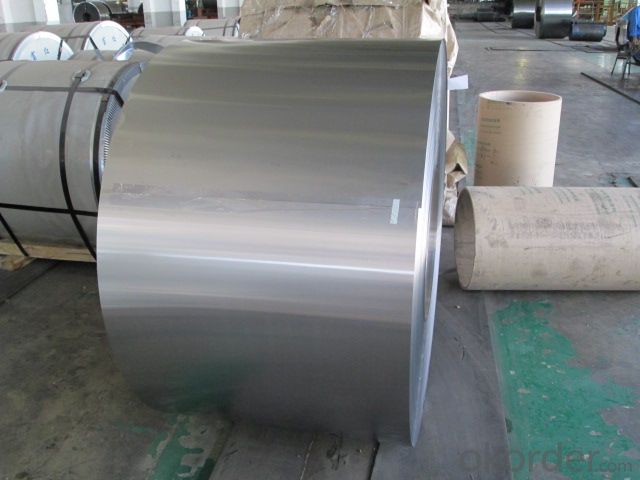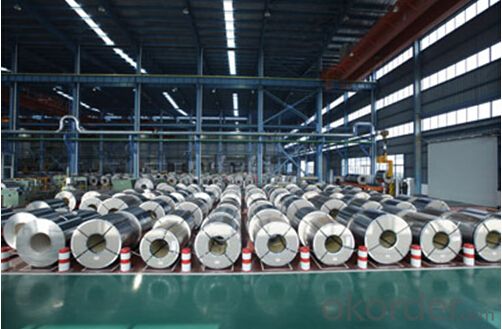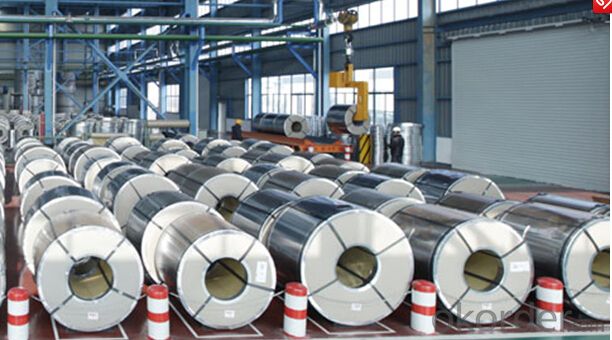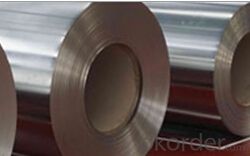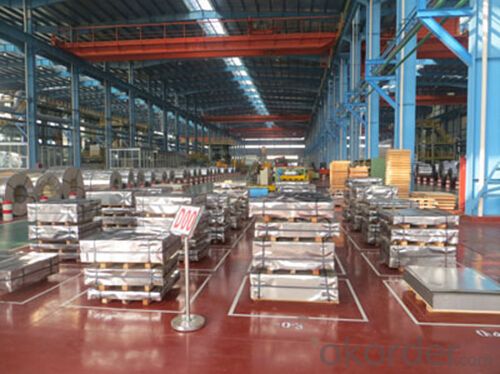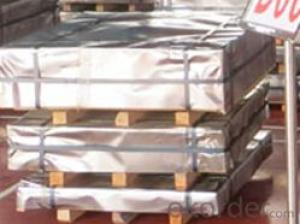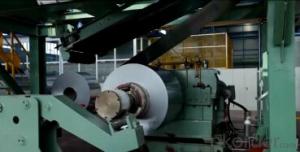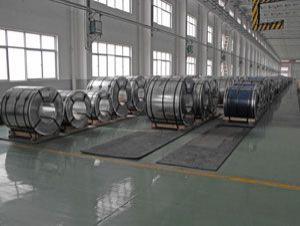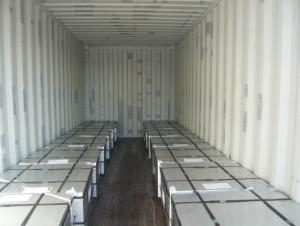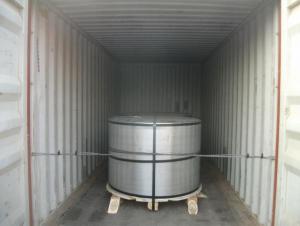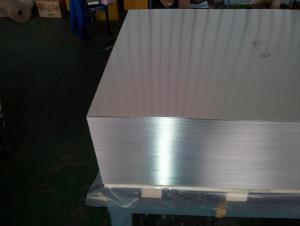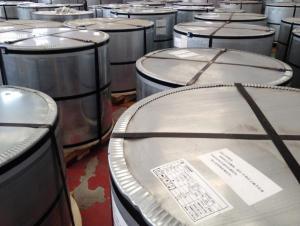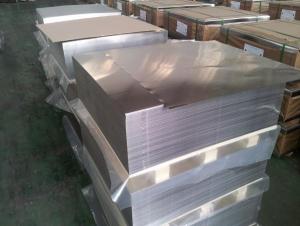Tinplate for Midle East Market with Stone Surface
- Loading Port:
- Shanghai
- Payment Terms:
- TT OR LC
- Min Order Qty:
- 50 m.t.
- Supply Capability:
- 1000 m.t./month
OKorder Service Pledge
OKorder Financial Service
You Might Also Like
1.Structure Description
Electrolytic Tinplate Sheets is one of the metal packing materials, which is widely used for making painting cans ,chemical package cans , electrical cable ,battery and metal printing etc.
2. Main Features
Steady and high quality
Fast shipment
Good experience for export work
For the surface, Plate uniform in thickness,uniform and smooth tin coating, without flaws,rusts,scratch,wave,nick of tin coating etc.
Price competitive
3.Images
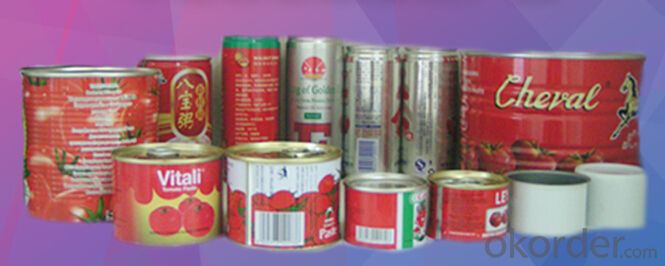
4. Specification
Standard : GB2520-2000 ,JIS G3303
Steel type : SPCC,MR
Coating : 2.8/2.8
Surface: Bright, Stone ,
Thickness:0.18
Width :600MM~1000MM
Temper : T1~T5,DR8
Package: tinplate wrapped completely with an inner cover of plastic or waterproof papers with vorners protected with metal angels.
5.FAQ
A. What is the package of tinplate? (Referred as below)
For sheets, thin plastic film + rust-proof paper + metallic cover + metallic angles+ steel band strips + fumigated wooden pallet.
For coil, thin plastic film + rust proof paper + metallic cover + steel band strips + fumigated wooden pallet
B. The surface of tinplate could you supply?
Stone finish, Bright finish, Matte finish, Silver finish
C. What quantity is the minimum order of tinplate?
Usually, the minimum quantity is 25MT. For special case, consult with us.
D. Can it make to be BA or CA for annealing?
Yes, both can do with.
- Q: What are the main applications of tinplate?
- The main applications of tinplate include food and beverage packaging, aerosol cans, electrical components, and decorative items.
- Q: Can tinplate be customized with different designs or logos?
- Yes, tinplate can be easily customized with different designs or logos through various printing processes such as lithography, offset printing, or digital printing. This allows for versatile branding and personalization options on tinplate packaging or products.
- Q: What are the main applications of tinplate in the photography industry?
- Tinplate is commonly used in the photography industry for the production of film canisters, which are used to store and protect photographic film. Its corrosion-resistant properties and ability to block out light make it an ideal material for preserving the quality of film. Additionally, tinplate is also used in the manufacturing of various photography accessories such as lens caps, lens hoods, and camera cases, providing durability and protection to photographic equipment.
- Q: What are the different tinplate grades available in the market?
- There are several different tinplate grades available in the market, including T1, T2, T3, T4, T5, and T6. These grades vary in terms of their thickness, coating weight, and mechanical properties, making them suitable for different applications.
- Q: Can tinplate be used for pet food packaging?
- Yes, tinplate can be used for pet food packaging. Tinplate is a commonly used material for food packaging due to its durability, corrosion resistance, and ability to preserve the quality and freshness of the contents. It is also safe for storing and packaging pet food products.
- Q: Can tinplate be used for toys and games?
- Yes, tinplate can definitely be used for toys and games. Tinplate is a durable and versatile material that can be easily molded into various shapes and sizes, making it suitable for manufacturing different types of toys and games. Its corrosion-resistant properties also ensure the longevity of the toys, making it a popular choice in the industry.
- Q: Tin cans and tin cans, which is good?
- Tin is tin plate, of course tin tin is tin pot. Another name is tin plate. For example, you ask tomatoes and tomatoes which taste good, as the brothers in Pohang say, the same thing is different.
- Q: How does tinplate packaging contribute to product convenience?
- Tinplate packaging contributes to product convenience by providing a durable and lightweight solution that is easy to handle and store. The tin coating on the packaging helps preserve the product's freshness and protect it from external elements, extending its shelf life. Additionally, tinplate packaging is easy to open and reseal, allowing for effortless access to the product and ensuring its convenience for consumers.
- Q: What are the common closure mechanisms for tinplate containers?
- The common closure mechanisms for tinplate containers include screw-on lids, snap-on lids, and press-on lids.
- Q: What are the main challenges in tinplate manufacturing?
- Some of the main challenges in tinplate manufacturing include ensuring consistent quality and thickness of the tin coating, preventing surface defects and tarnishing, maintaining efficient production rates while minimizing waste and scrap, and complying with environmental regulations regarding the use of tin and the disposal of waste materials. Additionally, the availability and cost of raw materials, as well as competition in the industry, can pose challenges to tinplate manufacturers.
Send your message to us
Tinplate for Midle East Market with Stone Surface
- Loading Port:
- Shanghai
- Payment Terms:
- TT OR LC
- Min Order Qty:
- 50 m.t.
- Supply Capability:
- 1000 m.t./month
OKorder Service Pledge
OKorder Financial Service
Similar products
Hot products
Hot Searches
Related keywords
